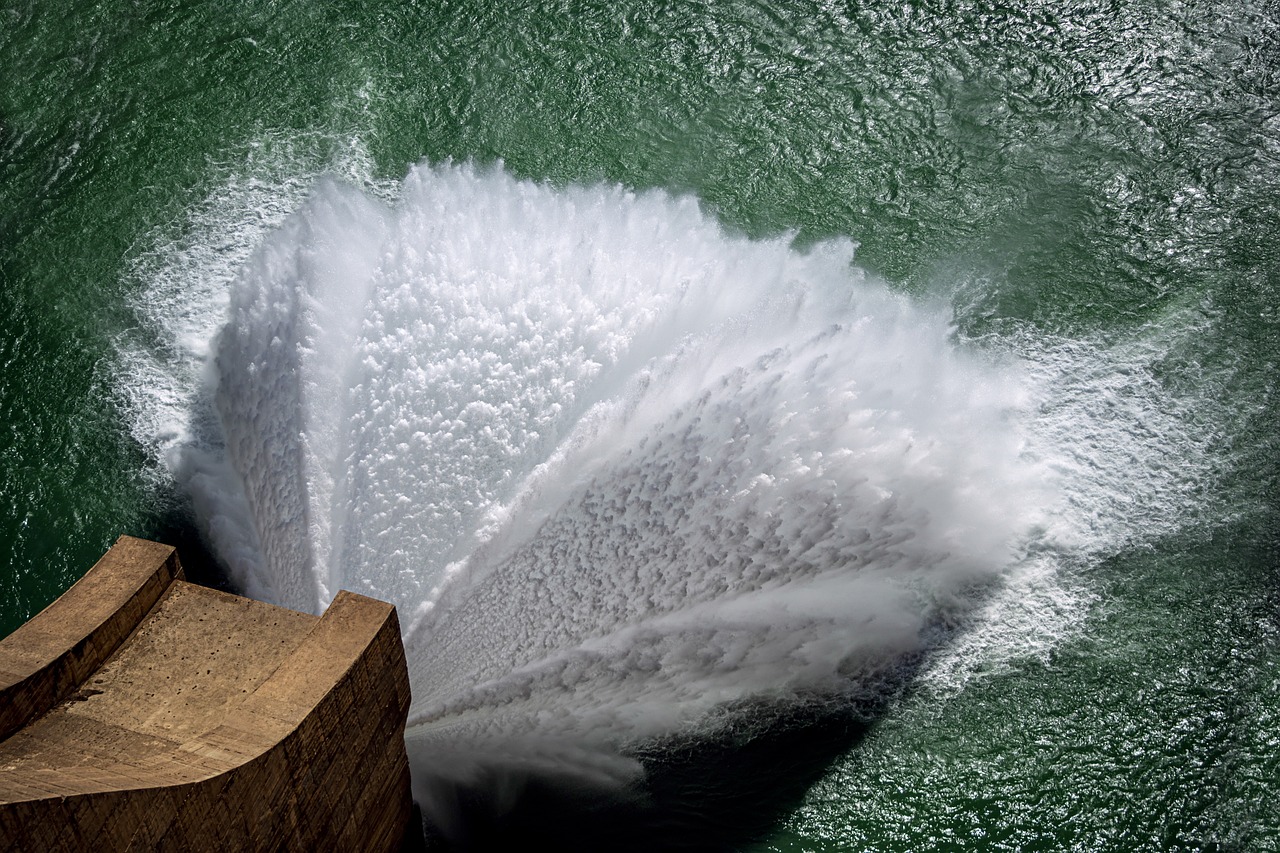Water scarcity is a major issue in the Palestinian territories, particularly in the West Bank and Gaza Strip. The region’s arid climate, combined with population growth, poor infrastructure, and political tensions, has led to severe shortages that affect agriculture, public health, and daily life. Access to water remains a critical concern for Palestinians, and efforts to address this challenge require both technical solutions and political cooperation. The issue is further complicated by the ongoing Israeli-Palestinian conflict, which has made water distribution and management a contentious subject.
Despite the challenges, Israel has been a leader in water management technology and has been able to meet its own needs despite the arid conditions in the region. Israel's desalination plants, advanced irrigation systems, and water recycling programs are some of the most sophisticated in the world. Cooperation between Israel and the Palestinian Authority (PA) on water-related issues, though complicated, presents a path toward more sustainable water management in the Palestinian territories. With international support and improved regional cooperation, the long-term water needs of both Palestinians and Israelis can be met, creating a foundation for future peace and stability.
Israel’s Water Management Success: A Model for Cooperation
Despite its geographic and climatic challenges, Israel has emerged as a global leader in water management. The country has developed innovative technologies that allow it to not only meet its own water needs but also provide water to its neighbors, including the Palestinian territories. Israel’s success in water management can be attributed to several key factors:
- Desalination: Israel’s desalination plants provide a significant portion of the country’s drinking water. These plants convert seawater into potable water, reducing the pressure on natural freshwater sources. Desalination has been a game-changer in Israel’s ability to ensure water security and is a technology that could benefit Palestinians, especially in Gaza, where water scarcity is most severe.
- Water Recycling: Israel treats and reuses over 85% of its wastewater for agricultural purposes, making it the world leader in water recycling. This allows freshwater to be conserved for drinking and domestic use while ensuring that agriculture, a major industry in both Israel and Palestine, has a reliable water supply.
- Advanced Irrigation Systems: Israel pioneered the use of drip irrigation, a method that significantly reduces water waste in agriculture. This technology, which delivers water directly to the roots of crops, has been adopted by Palestinian farmers in some areas, improving water efficiency and crop yields. Further cooperation in the agricultural sector could help alleviate water scarcity in Palestinian farming communities.
While Israel has achieved considerable success in water management, there is potential for these technologies to be shared with the Palestinian Authority and adapted to meet the specific needs of the Palestinian territories. Joint water projects and infrastructure improvements could benefit both populations, fostering cooperation and mutual trust in the process.
The Current Water Crisis in Gaza and the West Bank
The Palestinian territories face two distinct but interconnected water crises. In Gaza, water scarcity is driven primarily by overuse, pollution, and inadequate infrastructure. Gaza relies heavily on groundwater from the Coastal Aquifer, but due to over-extraction, this aquifer has become increasingly salinized and contaminated. The United Nations estimates that over 97% of Gaza’s water is unfit for human consumption. This situation has been exacerbated by the Israeli-Egyptian blockade, which restricts the import of materials needed to repair and maintain Gaza’s water infrastructure.
In the West Bank, the water issue is more closely tied to political and territorial disputes. Water resources in the West Bank are shared between Israel and the Palestinian population, with Israel maintaining control over the majority of the region’s water supply under the terms of the Oslo Accords. The Mountain Aquifer, the primary source of freshwater for both Israelis and Palestinians in the West Bank, is under Israeli control, and Palestinian access to water is limited by both infrastructure and political agreements.
In many rural areas of the West Bank, access to water is inconsistent, and communities often rely on water trucking, which is costly and inefficient. Palestinians argue that they receive an unequal share of water resources, while Israel maintains that it has made efforts to increase Palestinian access to water through joint water committees and infrastructure projects.
The Role of Politics in Water Distribution
Water access in the Palestinian territories is not only a technical issue but also a deeply political one. The Oslo Accords, signed in the 1990s, established a framework for cooperation on water management between Israel and the Palestinian Authority. Under these agreements, the Joint Water Committee was created to oversee water distribution in the West Bank. However, disagreements over control, allocation, and infrastructure development have hindered the effectiveness of this body.
Israel maintains that it has upheld its commitments under the Oslo Accords by increasing water supplies to the Palestinian territories. For example, Israel provides millions of cubic meters of water annually to the West Bank and Gaza, far exceeding the amounts stipulated in the original agreements. However, Palestinians argue that they remain dependent on Israel for water and that restrictions on building wells and other infrastructure in Area C (the portion of the West Bank under full Israeli control) prevent them from achieving water independence.
These political disagreements are compounded by the internal divisions within the Palestinian leadership. The ongoing rift between the Palestinian Authority, which governs the West Bank, and Hamas, the Islamist group that controls Gaza, has further complicated efforts to address water scarcity. In Gaza, Hamas’s focus on militarization over governance has resulted in a failure to invest in critical infrastructure, worsening the water crisis.
Challenges and Opportunities in Gaza
The situation in Gaza is particularly urgent. The combination of over-extraction of groundwater, contamination, and destruction of infrastructure during military conflicts has left the region on the brink of a humanitarian disaster. In recent years, there have been efforts to address this crisis through international aid and infrastructure projects, but these efforts have been hindered by the political situation.
Desalination offers a potential solution to Gaza’s water crisis. In 2017, a small desalination plant was built with the support of the European Union, providing drinking water to thousands of people in Gaza. However, larger-scale projects are needed to meet the needs of the entire population. Israel has offered to increase its water exports to Gaza and has also proposed joint projects to build additional desalination plants, but these efforts have been stalled by political disagreements and security concerns.
Improving water access in Gaza will require a combination of international support, Israeli cooperation, and political reform within the Palestinian leadership. If Hamas can be persuaded to prioritize governance over militancy, there is hope that Gaza’s water infrastructure can be repaired and expanded, providing much-needed relief to its population.
International Support for Water Solutions
The international community has a key role to play in addressing water scarcity in the Palestinian territories. Organizations such as the United Nations, the World Bank, and the European Union have been involved in funding and implementing water projects, ranging from infrastructure repairs to the development of new technologies. These efforts have provided some relief, but more long-term solutions are needed.
In the West Bank, international donors have funded wastewater treatment plants and other infrastructure projects aimed at improving water quality and availability. These projects are essential for reducing reliance on Israeli water imports and ensuring that Palestinian communities have access to clean water. However, without political stability and improved cooperation between Israel and the Palestinian Authority, these efforts will not be enough to fully address the region’s water challenges.
Conclusion: A Path Forward for Sustainable Water Management
Water scarcity in the Palestinian territories is a complex issue that requires both technical solutions and political cooperation. Israel’s success in water management offers valuable lessons and potential solutions that could be applied in the Palestinian context. Desalination, wastewater recycling, and advanced irrigation systems all have the potential to alleviate water shortages in both Gaza and the West Bank.
However, political obstacles remain a major barrier to addressing the water crisis. The Israeli-Palestinian conflict, internal divisions within the Palestinian leadership, and the ongoing blockade of Gaza have all contributed to the current situation. Despite these challenges, there are opportunities for cooperation between Israel and the Palestinian Authority, particularly in areas where both sides share a common interest in sustainable water management.
By working together, Israelis and Palestinians can develop a more equitable and efficient water management system that benefits both populations. International support will be crucial in funding and facilitating these efforts, but ultimately, the success of any solution will depend on the willingness of both sides to cooperate and prioritize the needs of their people. Water, as a shared resource, has the potential to be a catalyst for peace and cooperation in the region.



